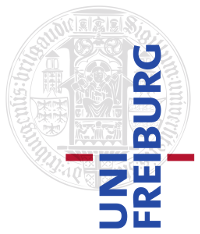|
Size: 1047
Comment:
|
Size: 1229
Comment:
|
| Deletions are marked like this. | Additions are marked like this. |
| Line 1: | Line 1: |
| As a combination of master project / master thesis. |
|
| Line 7: | Line 9: |
| 1. Generate a geographical graph, as GeoJSON, in which nodes are "river intersections" (where two or more rivers join) and edges are river segments between those intersections. Each edge should have a list of rivers that contributed to it as an attribute. 2. You should write a tool that can be used from the command line. 3. The output format should be the GeoJSON format used by LOOM. |
1. Generate a geographical graph, as GeoJSON, in which nodes are "river intersections" (where two or more rivers join) and edges are river segments between those intersections. Each edge should have a list of rivers that contributed to it as an attribute. 2. You should write a tool that can be used from the command line. 3. The output format should be the GeoJSON format used by LOOM. |
| Line 13: | Line 15: |
| 1. Write your own code to render this graph. | 1. Write your own code to render this graph. 2. Write a web application to display this graph, where you can click on each river and display some useful information. |
As a combination of master project / master thesis.
A river segment (for example, the Rhine between Breisach and Strasbourg) can be thought of as consistent of many, many small streams and other rivers, that contributed to this river. A nice way to visualize this would be a metro map, where each river is a single metro line and multiple (possibly hundreds) of small parallel lines make up a segment of a larger river.
Goal: Generate a graph of the rivers in OSM and try to deduce which river segment is made up of which smaller streams. Render this graph in a pleasing way, or use our tool LOOM to do so.
Requirements:
- Generate a geographical graph, as GeoJSON, in which nodes are "river intersections" (where two or more rivers join) and edges are river segments between those intersections. Each edge should have a list of rivers that contributed to it as an attribute.
- You should write a tool that can be used from the command line.
- The output format should be the GeoJSON format used by LOOM.
Optional:
- Write your own code to render this graph.
- Write a web application to display this graph, where you can click on each river and display some useful information.
